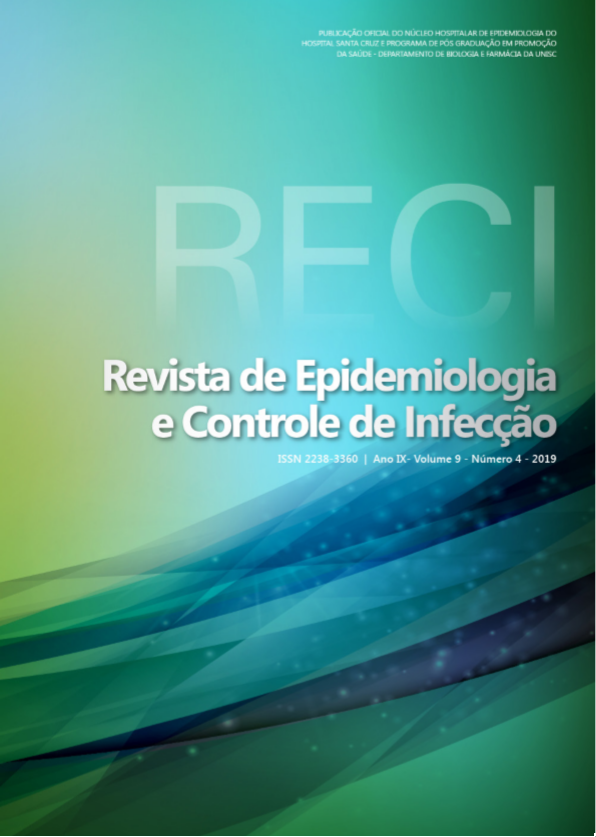Prescription of antimicrobials for hospitalized elderly: benefit analysis and association with implementation of therapeutic effort limitation and palliative care
DOI:
https://doi.org/10.17058/.v9i4.13006Keywords:
Older adult. Antimicrobials. Hospitalization. Palliative care.Abstract
Background and Objectives: Many advances have occurred in the prevention, diagnosis and treatment of infectious diseases, but they are still the main causes of hospitalization and death in older adults. The objective of this study was to verify the benefit of antimicrobial use and its association with the implementation of other therapeutic measures and with the indication of palliative care in the last two weeks of life of hospitalized older adults, in order to subsidize the development of rational models for this group. Methods: A retrospective study was carried out by analyzing the medical records of the older adult participants of the cohort epidemiological study ―Development of a Care Line for Older Adults at the University Hospital of Santa Maria‖, which presented death as an outcome. Results: Of the 97 individuals evaluated, 89.7% (n = 87) used antibiotics in the last two weeks of life. Among those who used antibacterial agents, 38.9% presented clinical signs of improvement after treatment initiation (n=28). Thus, it was possible to affirm that there was no association between symptom relief and antibacterial use (p = 0.377). Among those who benefited from antibiotic therapy, 46.4% were indicated for respiratory infection and 14.3% for urinary tract infection. We found no dependence between the use of antibacterial drugs and the other therapeutic measures adopted (p = 0.057), nor with the indication of palliative care (p = 0.065). Conclusion: There was little evidence of benefit in the use of antibiotics in the studied group, which indicates the need for a different care plan adequacy for this patient profile.Downloads
Downloads
Published
How to Cite
Issue
Section
License
The author must state that the paper is original (has not been published previously), not infringing any copyright or other ownership right involving third parties. Once the paper is submitted, the Journal reserves the right to make normative changes, such as spelling and grammar, in order to maintain the language standard, but respecting the author’s style. The published papers become ownership of RECI, considering that all the opinions expressed by the authors are their responsibility. Because we are an open access journal, we allow free use of articles in educational and scientific applications provided the source is cited under the Creative Commons CC-BY license.


